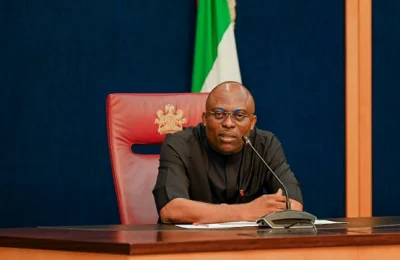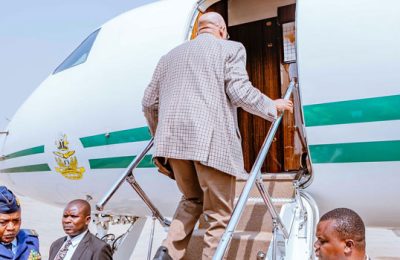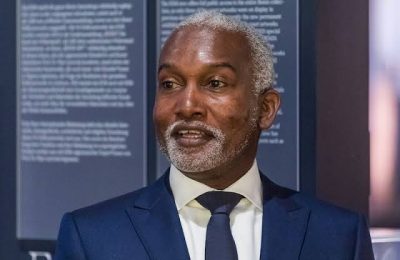

IT is rather lugubrious that we are standing and watching our indigenous languages in Nigeria going into a desuetude on their final peregrination into obscurity. It is amusing that our children are being moulded to speak the English language better than the real owners of the language. It is ludicrous that any child that mistakenly chatters in his or her mother tongue is maligned, but the one that speaks the English language is adulated. I still can’t phantom the reason for this craze, because I know that the early education of any Nigerian used to be in his or her mother tongue, at least that was the case when I was growing up. But nowadays, there’s no where, whether at home or at school, that these children are taught languages of their parents any longer. They are taught in English at school and they come home to continue their lessons of improving their proficiency in it. Even when the parents are illiterates, they still struggle to catch up to help their wards in the pedagogy of the language of our colonialists.
The ludicrousness is also noticed when children acting in our indigenous language movies are made to speak English and their parts have to be translated to the original language of the film. One then wonders, is there anything wrong in speaking our indigenous languages? Do we need mastery of English language for us to be great as individuals or as a country? If countries like China, Japan, France, England, etc, can be great without adopting other peoples’ languages, why can’t we? Our governments are not helping matters as well by making it compulsory that anybody that wants to further his or her education into any higher institution of learning should compulsorily pass English at a credit level. This is a hinderance children in other climes are not subjected to, since they don’t need the encumbrance of mastering other peoples’ languages before they can become whatever they want to become, unless what they decide to venture into has a direct relationship with that foreign language.
I once met a classmate of mine who was average in school, but his albatross, to become a mechanical engineer, was his inability to have a credit pass in English language. Even though he had all the other requirements and even was always well above the Joint Admission and Matriculation Board (JAMB) cut off mark for the course. He ended up being a road side mechanic, because he couldn’t have a credit pass in English language. The craze still continues today with successes in both West African Examination Council (WAEC) and National Examination Council (NECO) exams based on the percentage of students that had credits in English Language and Mathematics.

Even if our insistence is to destroy our indigenous languages, must it be because of another man’s language? Can’t we even develop our own lingua franca? Although attempts were made in the past to develop a Nigerian language using words from the three main languages of Nigeria, a project called ‘WAZOBIA’ coined from the words for “come” in Yoruba (wa), Hausa (zo) and Igbo (bia), this has long been jettisoned. We only see it written as a word not spoken as a language. But why do we even need a ‘Wazobia’ when we have a Pidgin English? Pidgin English is a language not formally taught, but almost all Nigerians understand it, and the majority of Nigerians can speak it. It is a language that both the literate and illiterate can speak and comprehend, why can’t we adopt this language formally? I am sure if our children are taught in this language, they would cope better, rather than having this massive rates of failure in our major exams. Whether we like it or not ‘Pidgin English’ comes more natural to any Nigerian than the Queen’s English or is it now King’s English? No wonder, anything Nigerian is better promoted with pidgin English.
ALSO READ FROM NIGERIAN TRIBUNE
We have to take a cue from our musicians that are breaking new grounds and winning hearts and awards, even Grammy’s, using the pidgin language, or how much of pidgin English does Robin Van Persie or Jermaine Jackson understand for them to attest to listening to the music of P’Square? Or how well does Ed Sheeran understands Pidgin English before he forced a collabo with Fireboy? And there are many other such examples. Inasmuch as I clamour for more relevance to be given to Pidgin English since many Nigerians are more at home with ‘Naija’ than ‘Nigeria’, we should still not sing an obsequious dirge for our own indigenous languages; a balance of relevance should be given to the two at the expense of the English of the British or of other adoptation. I doff my hat for the Lagos State House of Assembly that passed a bill making the teaching of Yoruba language compulsory in schools in the state into law in October 2017. The bill makes the teaching of Yoruba language compulsory both in private and public schools in the state. It also makes it a core subject at all levels and stipulates a fine of N500,000 for a corporate offender while any school in the state which fails to comply with the law faces closure and a fine of N250,000. It is now expedient that all other states in Nigeria should emulate this. The Federal Government of Nigeria should also consider adopting as our lingua franca or as a second official language.

The colonialists came to steal our religions on the pretence that it is demonic, but foreigners now worship “ifa” more proudly than in Yorubaland where it is indigenous. They stole our culture under the pretence that it is barbaric, so nowadays you hardly see any boy prostrating to greet their elders. They took away our mode of dressing under the façade that it was inferior that guys were more comfortable in shirts and trousers than in ‘buba and sọ̀rọ̀’. Now the siege is now on our languages. We should take caution before we place the memory of our languages on a linguistic epitaph thus: “we once had a language”.
- Dr. Famuyiwa writes in via maclaw196@gmail.com








